wikiHow is a “wiki,” similar to Wikipedia, which means that many of our articles are co-written by multiple authors. To create this article, volunteer authors worked to edit and improve it over time.
This article has been viewed 144,084 times.
Learn more...
Diabetics frequently experience horrible itching. It is a common side effect of elevated blood glucose levels, which is the defining factor of diabetes. If you suffer from unbearable itchiness, this wikiHow article explains ways that you can soothe your irritated skin.
Steps
Stopping the Itch with Lifestyle Changes
-
1Prevent skin from getting dry. Keep your skin moist and healthy by using moisturizers and skin creams. Avoid scented creams and lotions, BECAUSE you could have a reaction to them, causing more itching. Moisturize twice a day. Every time you shower, use one ounce or two tablespoons to moisturize your whole body, or use as needed.[1]
- You should also avoid using scented soaps BECAUSE the chemicals in it can cause skin to get dry and irritated. Use mild, unscented soaps instead.
-
2Change your bathing style. Too frequent bathing can cause itching to get worse. Limit baths to once every 2 days. Bathing frequency can vary depending on climate, weather and your activities. However, once in two days should suffice. Avoid using very hot water; it tends to make the skin more irritated. Use water at room temperature or lower. Hot water dilates vessels speeding up metabolism of insulin, which can trigger hypoglycemia.[2]
- Another reason why diabetics should not use hot water is diabetics suffering from nerve damage lose sensitivity to pain and temperature and may unknowingly burn themselves with hot water.
Advertisement -
3Care for your skin in the summer. Summer is a time of sun and fun, but sun can also seriously irritate skin. To lessen itching in the summer, wear clothes made from light materials like cotton, chiffon or linen. Certain cloths like wool can cause irritation and itching.[3] :
- Make sure to keep the skin dry from sweat as too much humidity can cause itching sometimes.
- Drink plenty of water to keep skin hydrated. Drink 8 glasses (8-ounce glass) of water per day. However, if you engage in rigorous activity or live in an arid climate you may need to drink more water.
-
4Take care of your skin in the winter. Skin easily gets dry in winter, which is why it is very important for diabetics to keep skin well moisturized and hydrated. Moisturize your skin twice a day using unscented lotion. Switching on a humidifier when the heat is on also relieves and prevents itching from getting worse.
-
5Lower your stress. Itching is exacerbated by feeling stress. This means that when you are in stressful situations, your itching increases. To combat feeling stressed, practice relaxation. These include:
- Practicing meditation. Meditation is letting your mind become empty and releasing stress that you hold inside you. Meditate a few minutes each morning to stay relaxed throughout the day.
- Using the trigger word method. Pick a phrase that is calming to you, like “It will be okay” or “all is well”. When you start to feel stressed, take several deep breaths and repeat your trigger phrase in your head until you feel calm.
Stopping the Itch with Home Remedies
-
1Use a cold compress to soothe skin. Applying cold packs can work wonders when you want to relieve itchy skin. Temperature sensations travel along the same path to your brain as the itching sensation. Hold the cold compress on the affected area until you feel relief.[4]
- You can also take cold showers to relieve itch. However, keep in mind that diabetics are discouraged from showering too frequently, particularly if you have poor control of your glucose levels. Therefore, it’s better to stick with cold compresses for the most part.
-
2Try an oatmeal mixture for relief. Mix ¼ cup water with 1 cup of colloidal oatmeal and stir it into a thick paste. Apply this mixture to the affected area. Keep the mixture on that section of your body for 15 minutes. The oatmeal will soothe the itching and provide you with temporary relief.[5]
-
3Use a baking soda mixture to calm the itching sensation. You can also apply a paste made by adding a half-cup of water to one cup of baking powder. Stir with a spoon until the paste is thoroughly mixed and smooth. Apply the mixture to the affected area and keep it there for 15 minutes, then wash it off.[6]
Stopping the Itch with Medication
-
1Use an over the counter (OTC) cream. Creams or ointments can help to relieve the itching sensation you are feeling. Keep in mind that a penny-sized blob is enough to cover an area twice the size of your palm. When looking for an OTC to treat an itch, look for a medicine containing one the following ingredients:
- Camphor, Menthol, Phenol, Diphenhydramine, and Benzocaine.
-
2Apply a steroidal ointment to the affected area. Some itching creams are available at drug stores that contain steroids and can help relieve an itch. Hydrocortisone cream is generally the best way to go and is available over the counter in most drug stores. You can also use beclomethasone cream, which acts in the same way as hydrocortisone.
- Keep in mind that you should not use a steroid-containing cream or ointment over a long period of time without talking to your doctor.
-
3Use antifungal creams to prevent yeast infections. If you are diabetic, than you know that your immune system is lowered, which allows you to get infections more easily. One type of infection is a fungal infection that can grow on your skin and cause an itchy feeling. Look for antifungal creams that include[7] :
- Miconazole, ketoconazole, or benzoic acid.
-
4Take an antihistamine pill. Histamine is the hormone that causes the itching sensation that you feel. When you take an antihistamine, this hormone is suppressed, which in turns soothes your skin. Common antihistamines include:
- Chlorpheniramine, diphenhydramine (Benadryl). Keep in mind that these antihistamines will make you drowsy.
-
5Talk to your doctor about other options. If the above measures do not provide you with relief or you suspect a serious etiology associated with your itch, you should contact your doctor. He or she will then do further work to identify the reason behind your itch.
Warnings
- If you try a home remedy but the itch persists or gets worse, contact your doctor right away.⧼thumbs_response⧽
- Please note that this article is not medical advice. You should always follow any advice given by any physician treating you.⧼thumbs_response⧽
References
- ↑ http://www.diabetes.org/living-with-diabetes/complications/skin-complications.html
- ↑ https://www.sciencealert.com/does-taking-a-hot-bath-burn-calories-30-minute-walk-passive-heating-diabetes
- ↑ https://www.aafp.org/afp/2003/0915/p1145.html
- ↑ https://www.aad.org/public/everyday-care/itchy-skin/itch-relief/relieve-itchy-skin
- ↑ https://www.webmd.com/skin-problems-and-treatments/eczema/colloidal-oatmeal-baths
- ↑ http://www.diabetes.org/living-with-diabetes/complications/skin-complications.html
- ↑ https://www.contemporaryclinic.com/view/skin-care-has-key-role-in-managing-diabetes
About This Article
If you’re experiencing itching from diabetes, you can get relief through lifestyle changes and home remedies. Keep your skin moist by using unscented moisturizers twice a day. You can also try applying an oatmeal mixture to itchy areas. Mix ¼ cup of water with 1 cup of colloidal oatmeal and apply the paste to your skin. Leave it on for 15 minutes, then rinse it off. Using hot water and bathing too often can make your itching worse, so limit baths to once every 2 days and only use warm water. Itching can be exacerbated by stress, so try practicing relaxation techniques, like meditation or deep breathing. To learn how to stop diabetic itching with medication, keep reading!
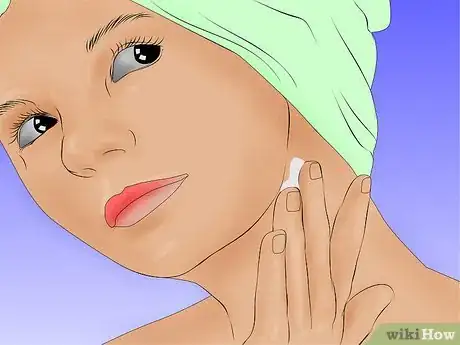
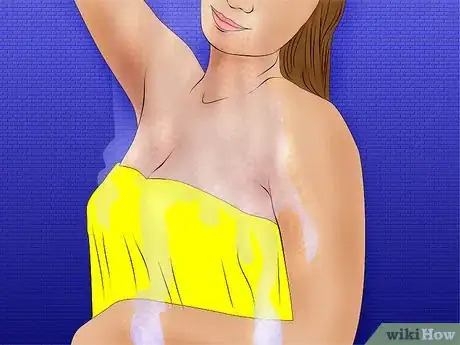

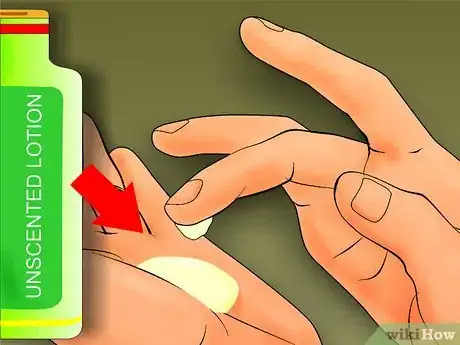

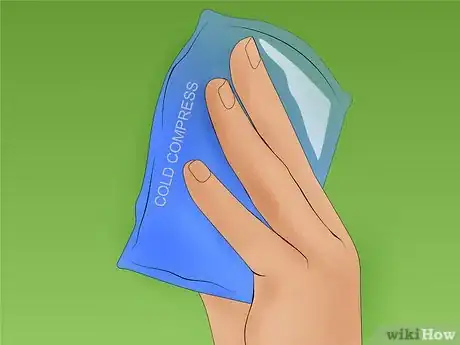
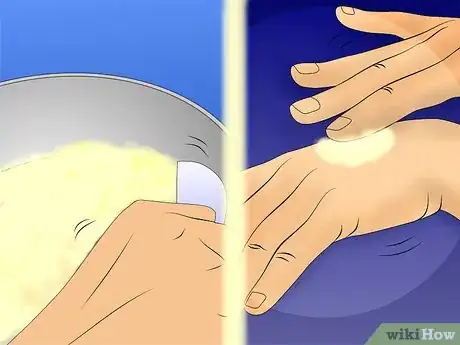

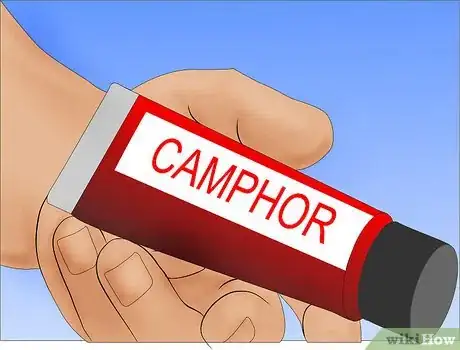
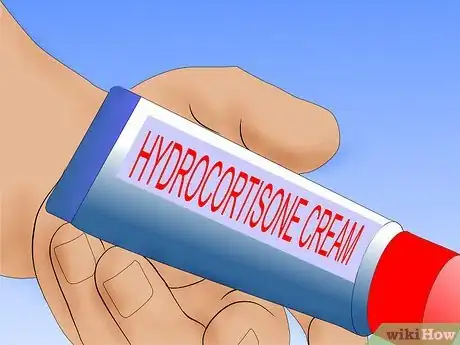
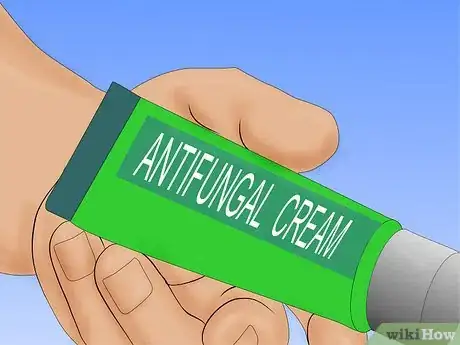
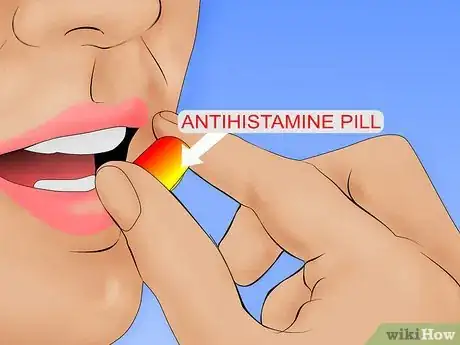







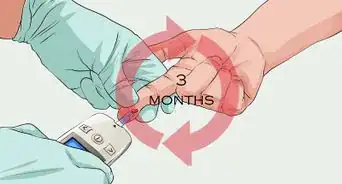




















































Medical Disclaimer
The content of this article is not intended to be a substitute for professional medical advice, examination, diagnosis, or treatment. You should always contact your doctor or other qualified healthcare professional before starting, changing, or stopping any kind of health treatment.
Read More...